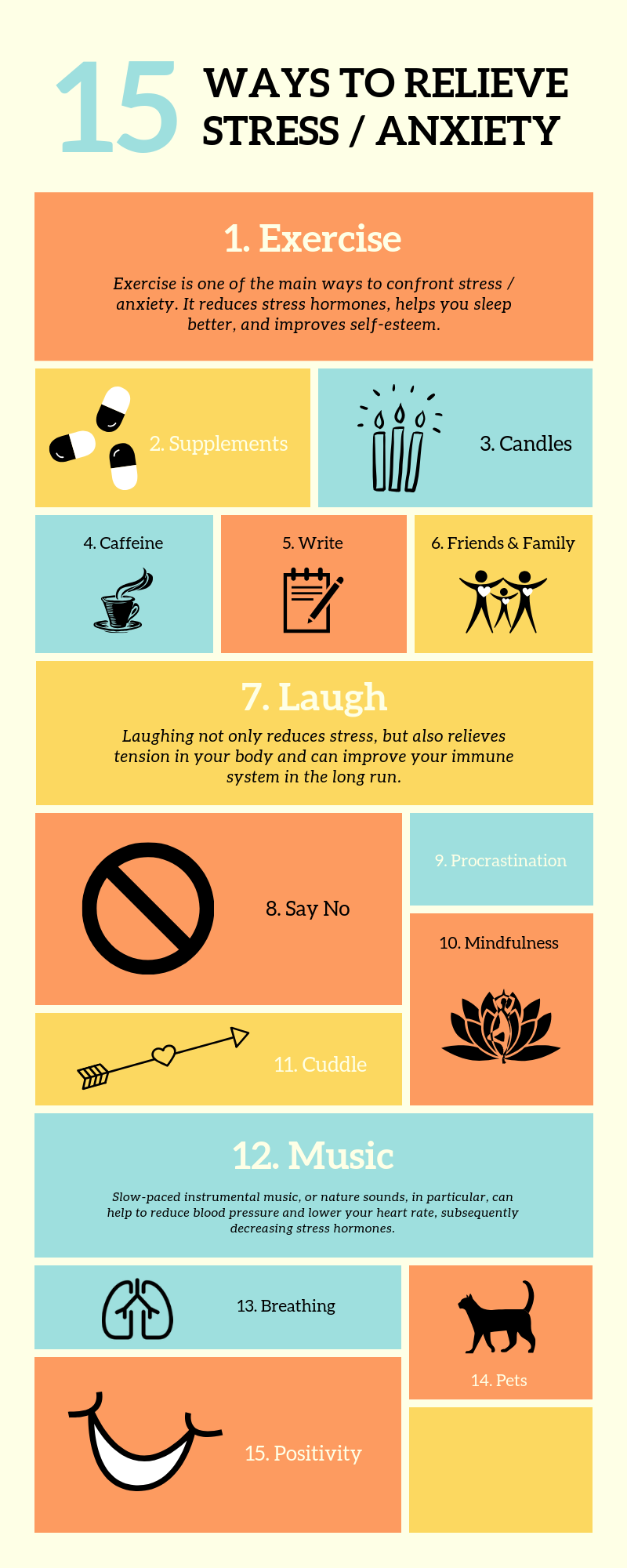
Dogs reduce stress by lowering cortisol levels and increasing oxytocin levels through social interaction and petting. Research has shown that petting a dog can lower stress hormone levels, while the presence of dogs can provide comfort and support during times of distress.
Dogs can sense anxiety and may offer comfort by staying by your side or engaging in soothing behaviors. Petting dogs in specific areas, such as the lower back, belly, and top of the head, can help relax both the dog and the owner.
Additionally, owning a dog can improve lifestyle by increasing exercise, providing companionship, and reducing anxiety. Dogs are even prescribed to children and teens with anxiety as a way to alleviate symptoms. Overall, dogs play a crucial role in reducing stress and improving well-being.

The Benefits Of Dogs In Reducing Stress
Dogs offer numerous benefits in reducing stress. From lowering cortisol levels to increasing oxytocin, petting a dog can be calming. Dogs can also sense anxiety and provide comfort when needed, making them great companions for stress relief.
1. Physical Interaction And Hormones
Research has shown that simply petting a dog lowers the stress hormone cortisol. In contrast, the social interaction between people and their dogs increases the feel-good hormone oxytocin (the same hormone that bonds mothers to babies) [source]. Dogs provide the perfect opportunity for physical interaction, such as playing, walking, and cuddling, which distracts us from stressful thoughts and releases endorphins that help improve our mood and reduce anxiety.
2. Dogs Sensing And Responding To Stress
Dogs have an incredible ability to sense our emotions, including stress, anxiety, and depression. They are highly attuned to human facial expressions and vocal cues. They can pick up on our distress and respond with comforting behaviors, such as cuddling, leaning against us, or even licking our faces [source]. Having a furry friend who empathetically senses and responds to our stress can be incredibly beneficial in helping us feel supported and calm.
3. Areas To Pet Your Dog For Relaxation
Knowing where to pet your dog can help you and your furry companion relax. Here are some key areas to focus on:
- Lower back, near the base of the tail
- The belly and underside of the chest
- Top of the head and neck
- Under the chin
- On the front of the neck
- On the sides of the thighs
Petting these areas releases a calming effect not only on your dog but also on yourself. The rhythmic motion of stroking and the physical connection with your pet can help reduce stress levels and promote relaxation [source].
The Impact Of Dogs On Mental Health
Dogs are not just our furry friends; they play a significant role in improving our mental health. Research has shown that petting a dog can lower the cortisol stress hormone. In contrast, the social interaction between people and their dogs increases the feel-good hormone oxytocin levels. The bond between humans and dogs is truly remarkable and goes beyond companionship. Let’s explore how dogs can positively impact our mental well-being.
1. Improving Lifestyle And Well-being
Having a dog can profoundly impact our lifestyle and overall well-being. Dogs encourage us to live an active life by requiring daily exercise such as walking or playing fetch. Regular physical activity helps keep us fit and releases endorphins, the body’s natural mood boosters. This can positively impact our mental health and help alleviate stress and anxiety.
2. Dogs As Companions And Social Connectors
One of the most significant benefits of having a dog is the companionship they provide. Dogs are loyal and non-judgmental companions who are always there to listen and offer unconditional love. They can give a sense of emotional support and comfort during difficult times. In addition, dogs often serve as social connectors, helping to foster relationships with other dog owners in the neighborhood or at parks. This can combat loneliness and isolation and contribute to belonging and community.
3. Reducing Anxiety And Providing Structure
Dogs have a natural ability to sense our emotions and can provide a calming presence during anxiety or stress. They offer a sense of security and can help to alleviate symptoms of anxiety disorders by providing emotional support and companionship. Dogs also thrive on routine, which can be beneficial for individuals who struggle with anxiety or have difficulty establishing structure in their lives. The daily care and responsibility of caring for a dog can provide a sense of purpose and stability, aiding in reducing stress and anxiety.
Overall, dogs have a profound impact on our mental health and well-being. Their unconditional love, companionship, and ability to reduce stress and anxiety make them an invaluable source of support. Whether through exercise, friendship, or a sense of structure, dogs can improve our mental state and contribute to a happier and healthier life.
Research On Dogs And Stress Reduction
Research on dogs and stress reduction has shown that simply petting a dog can lower the stress hormone cortisol and increase the feel-good hormone oxytocin levels. Dogs can sense anxiety and comfort their owners by picking up on facial and vocal cues.
Additionally, petting a dog in specific areas, such as the lower back, belly, and top of the head, can help relax both the owner and the dog. Owning a dog can have various benefits, including reducing anxiety and adding structure and routine to one’s day.
1. Dogs As Prescription For Anxiety
Did you know that dogs can be prescribed as a natural remedy for anxiety? It’s true! Many individuals, particularly children or teenagers, who struggle with anxiety have found immense relief in having a furry companion by their side. Dogs offer unconditional love and support, which can significantly reduce feelings of stress and anxiety. Whether it’s snuggling up on the couch, going for a walk, or simply playing in the backyard, the presence of a dog can have a calming effect on the mind and body.
2. Scientific Evidence On Dogs Lowering Stress Levels
Scientific research has repeatedly shown the positive impact that dogs can have on reducing stress levels in humans. Studies have found that petting a dog can decrease the stress hormone cortisol and increase oxytocin levels, often called the “bonding hormone.” Oxytocin is known for promoting feelings of happiness, trust, and relaxation. The physical contact and social interaction between humans and their dogs release these feel-good hormones, making us feel more at ease and less stressed.
3. How Owning A Pet Can Benefit Your Health
Owning a pet, especially a dog, goes beyond the immediate joy they bring to our lives. It also offers numerous health benefits that contribute to overall well-being. Here are some ways owning a dog can benefit your health:
Increasing exercise: Dogs require daily walks and playtime, helping to keep owners active and fit.
Providing companionship: Dogs are loyal companions, offering emotional support and reducing feelings of loneliness and isolation.
Helping you meet new people: Dog owners often have opportunities to socialize with other dog owners, leading to new friendships and connections.
– Adding structure and routine to your day: Dogs thrive on routines, which can help create a sense of stability and design in our lives.
– Providing sensory stress relief: Petting a dog, feeling their warm fur, and hearing their soothing breath can relieve them.
Find meaning and joy in life. Dogs bring a sense of purpose and happiness to our lives, helping us find joy in the simplest of things.
– Stay connected: Caring for a dog requires responsibility and commitment, giving owners a sense of purpose and a reason to stay related to their pets.
In conclusion, the research on dogs and stress reduction is clear: having a furry friend can significantly lower stress levels and improve overall well-being. Whether it’s the physical contact and warmth they provide or the emotional support and companionship they offer, dogs can make us feel happier, more relaxed, and less stressed. So, if you’re looking for a natural way to reduce stress, consider adopting a furry companion. Your mind, body, and soul will thank you!


Frequently Asked Questions For 15 Ways Your Dogs Help Reduce Your Stress
How Does My Dog Reduce My Stress?
Research shows that petting dogs reduce stress by lowering cortisol levels and increasing oxytocin, the feel-good hormone. Dogs can also sense and respond to anxiety and offer comfort. Petting areas like the lower back, belly, head, and neck can help relax dogs.
Dogs provide companionship, reduce anxiety, and add structure to your day, improving your overall well-being.
Can Dogs Sense Anxiety?
Yes, dogs can sense anxiety and may pick up on facial and vocal cues. They may also offer comfort when you’re upset.
Where Do Dogs Hold Stress?
Dogs hold stress in their body language, such as tightly pulled-back mouths, furrowed brows, tension around the eyes, and pinned-back ears. Petting areas like the lower back, belly, head, neck, chin, and thighs can help them relax. Dogs can also sense and alleviate human stress through social interaction.
Where Can I Pet My Dog To Relax?
You can pet your dog to relax in the following areas: lower back near the base of the tail, belly, and underside of the chest, top of the head and neck, under the chin, and on the front of the neck and sides of the thighs.
Conclusion
Having a dog can significantly reduce your stress levels. Research has shown that petting a dog can lower the stress hormone cortisol and increase the feel-good hormone oxytocin levels. Dogs can also sense and reflect your anxiety, offering comfort and companionship during difficult times.
Knowing where to pet your dog can provide relaxation and stress relief. Ultimately, dogs can be wonderful companions that bring joy, structure, and routine to your life, helping you to lead a happier and less stressed lifestyle.




